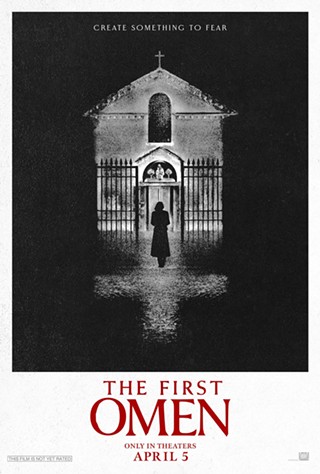Earlier this month, John Wilpers died at the age of 93. Wilpers was not hounded by TMZ on a daily basis and he probably wasn't the center of attention in his hometown for the past 65 years, but he played a key role in American history. At the end of World War II, Wilpers stopped former Japanese Prime Minster Hideki Tojo from committing suicide. Although Tojo shot himself in the chest when U.S. forces arrived to arrest him, Wilpers persuaded a medic—by way of his own gun—to keep Tojo alive until an American doctor could arrive to treat the prisoner. Tojo eventually was convicted of war crimes and hanged in 1948, and Wilpers' story faded into the footnotes.
Tojo's suicide attempt is re-created toward the beginning of Emperor, a historical drama that loses its footing early and often by leaning toward the drama instead of the history. It's staggering to think that, in a story featuring the larger-than-life Gen. Douglas MacArthur (Tommy Lee Jones), a historic meeting between MacArthur and the reclusive Emperor Hirohito, and some really gorgeous cinematography, the filmmakers were compelled to spend so much time on an Army officer's lost love.
Romances, even tragic ones, are not anything new. But you don't often get a platform to reveal a chapter of history as underreported as America's commitment to rebuilding Japan after destroying three of its major cities, decimating its resources and killing hundreds of thousands of its citizens. So who in their right mind thought the troubles of two people, to paraphrase Casablanca, amounted to a hill of beans in this movie?
Emperor begins where it should: Hiroshima. After the U.S. flexes its nuclear muscle and Japan surrenders, American troops are on the ground in Tokyo to begin putting the pieces back together. MacArthur commissions Gen. Bonner Fellers (Matthew Fox) to lead an investigation into the emperor's role in war crimes. Just how much did Hirohito know, and did he ever try to stop Pearl Harbor or anything thereafter? Fellers has history in the land of the rising sun; he had studied here and even carried a torch for his Japanese-born college love, Aya (Eriko Hatsune) more than a decade later. While he builds his case on the emperor, Fellers also explores whatever happened to Aya, punctuated by flashbacks.
It's understandable that director Peter Webber (The Girl with the Pearl Earring) wants to keep some of the romance in this story. It makes Fellers a much more sympathetic character and also gives him some real internal conflict. But at least a third of the film is Fellers searching for Aya, and in a movie called Emperor and featuring one of the great supporting actors of his generation portraying such an iconic egotist as Douglas MacArthur, that's just way too much. And for what we get out of it, two scenes would have opened and closed that book pretty effectively.
There is simply more to tell that the film could easily give us, because when it focuses on the investigation or Japanese culture, it's dead on. It does not need to go as deep as getting into John Wilpers' life story, but 1945 was a pretty significant year in Japan, and the characters in play are impressive and interesting enough on their own. If the U.S. charges Hirohito, which would ultimately lead to a conviction and execution, a war-battered country that takes any kind of shame pretty seriously could erupt in a revolution. It's a delicate position for everyone. MacArthur is guarding against that and needs Fellers' investigation to back him up. Nobody needs this guy's endless fascination with an old girlfriend.
Tommy Lee Jones as Douglas MacArthur? Man, that's good casting. Jones is not exactly tied to a chair here, but given how much room there is to move within this character and story, he's nearly an afterthought before the film ends. Who reads this script, realizes they've got Tommy Lee Jones as the most vainglorious general of the 20th century, and says, "Yeah, but let's focus on an inferior actor and an inferior subject instead"? It's just so damned frustrating.
Jones livens things up whenever he's on screen, but this is not even close to what it should be. Webber is also fully committed to making Japan look equally beautiful and desolate, depending on the specific setting. The cinematography is terrific without being ostentatious, which is the way a lot of period pieces tend to play it.
Average movies come around every week. Average movies with real stories to tell are less frequent. But movies that tell their real stories this well and then camouflage them behind some rattle-brained love quest subplot are practically unique. And not in a good way.











